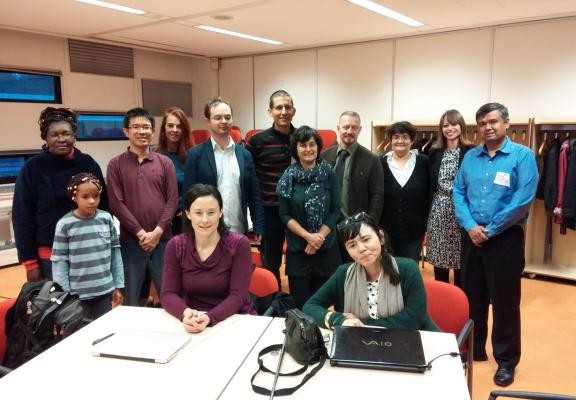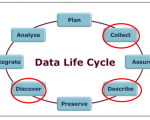Education is an important aspect of society and assessing the progress made by learners is key to appreciating, validating and if need be improving the educational system in place. Determining how to best assess learning outcomes continues to be a challenge for teachers and policy makers alike. From collaborative problem solving to using interactive programs, printed books and supplementary materials to independently finding information online, learning can take many forms as can assessment.
The goal of the KNOWeSCAPE workshop “Making sense of education indicators” held on November 18-20 in Amsterdam was to gather a diverse group of experts interested in data and education to discuss how to adjust current data-based indicators to track more accurately a varied range of learning approaches. The discussion centered around data, privacy, indicators, and visualisations for the first two days of the event. During the final day the workshop participants joined the Bee Collective Festival on November 20th to crowdsource additional feedback on evaluating progress made by young learners.
The full report can be found here: http://knowescape.org/wp-content/uploads/2016/03/Making-sense-of-education-indicators-report.pdf and here: http://worldwidesemanticweb.org/2015/11/27/edindicators-workshop-2015/
Take away messages
Some take away messages from those three days:
- It could be interesting to develop a query API with support for access control lists (ACL) on top of the already well established Tin-can protocol, also known as Experience API.
- There is a need for a framework to help stakeholders choose identifiers.
- Education is moving from the capacity of remembering undisputed facts to the capacity of solving problems and critically looking at information. This will call for adjusting the identifiers used to appreciate the quality of education.
- Education should not be seen as a step by step process with clear checklists. It is rather a continuous process allowing for different paths. This calls for indicators based on a continuous form of assessment.
- Education indicators can be statistically incoherent, used outside of their context or based on inaccurate data. This are important risks that need to be kept in mind at all times and mitigated as possible.
- A working paper should be produced to further develop the ideas discussed during the workshop. This should include the further elaboration of the “Learning Analytics Reference Model”.
Written by Christophe Guéret and Benita Rowe.
Photos by Christophe Guéret and Anna Bon. Many thanks to Sameer Verma, Roeland de Kok, Mike Dawson, Jahna Otterbacher, Giulia Rotundo, Senka Anastasova, Haluk Osman Bingol, Anna Bon, Bert Bredeweg, Cheah Waishiang, Applonia Mmbone and Nikolay Vitanov for their contributions.





